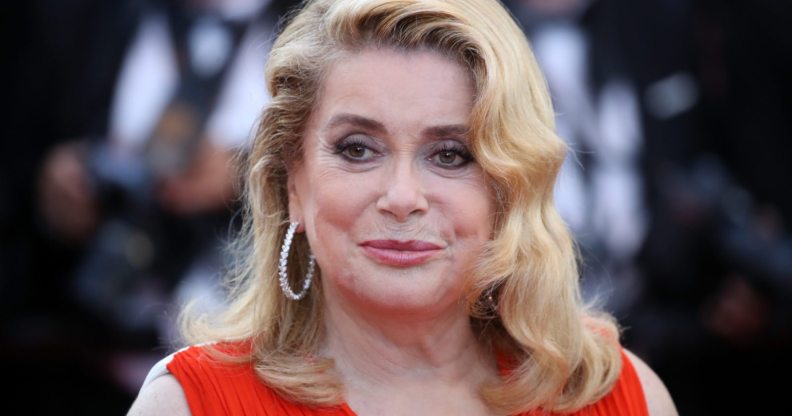Deneuve’s #MeToo letter doesn’t just stigmatise women – it insults gay victims too

CANNES, FRANCE – MAY 23: Actor Catherine Deneuve attends the 70th Anniversary of the 70th annual Cannes Film Festival at Palais des Festivals on May 23, 2017 in Cannes, France. (Photo by Chris Jackson/Getty Images)
Deneuve’s letter was a disappointingly stale take.
In the open letter, published by Le Monde, her and 99 other women came together to criticise the #MeToo campaign, writing a Mills and Boon sponsored post on how the reams of harassment accusations are destroying a man’s “freedom to pester” in a manner that is “indispensable to sexual freedom”.
Although there’s a lot to unpack here (please feel free to donate to my 30,000 word thesis project in the comments below), we’ll start with one thing that concerns gay victims of harassment like me – letters like these romanticise and fail to address a world and reality where plenty of victims and perpetrators are not straight.

(Photo by Chris Jackson/Getty Images)
This might not seem that important to identify from the off. Criticisers of the campaign like Deneuve certainly wouldn’t see what the fuss is about. To them, the world is made up of one stock type of man and one stock type of woman – and any other identity is a frivolity of the modern day.
But one disappointing group of traditionalists shouldn’t sway us from addressing the realities of harassment, and identifying that no struggle is isolated, and no victim of harassment is the same. And to dismiss the existence of LGBT victims in one fell swoop means that our experiences run risk of being erased from the discourse.
According to the CDC’s National Intimate Partner and Sexual Violence Survey, 44 percent of lesbians and 61 percent of bisexual women experience rape, physical violence, or stalking by an intimate partner, compared to 35 percent of heterosexual women.
A further 26 percent of gay men and 37 percent of bisexual men experience rape, physical violence, or stalking by an intimate partner, compared to 29 percent of heterosexual men.
In a US survey created by the National Center for Transgender Equality (NCTE), out of 27,715 participants nearly half (47 percent) have been sexually assaulted in their lifetime.
And while Deneuve’s #MeToo attack categorises these non-binary lines as indeterminate wiles that are anomolies in a man’s pursuit for romance, we know that the voices of those who do not and cannot conform need to stand out.
There’s nothing romantic about sexual harassment, and there’s nothing unclear about what constitutes as predatory behaviour. As the law stipulates, if person’s behaviour makes you feel uncomfortable or unsafe, then that’s harassment.
.
Romanticising a world where consent is subjugated for pursuit, and being a person with sexual urges makes you so charged that you’re unable to sate your thirst in harassing a woman.
And not only does prioritising levels of harassment to make them due for consideration create a strange wave of validity in what is traumatic enough to mention, to effect, and to discuss, it creates this idea that one form of harassment affecting one specific person exists.
In the limelight alone, Executive Producer of Man In The High Castle’s Isa Hackett told her story of being harassed by Amazon Studios exec Roy Price.

Executive producer Isa Hackett (Photo by Charley Gallay/Getty Images for Amazon Studios)
Transparent star Jeffrey Tambor is also alleged to have “thrust his penis” at transgender co-star Trace Lysette.
And let us not forget the bravery of queer actor Anthony Rapp, who lodged a sexual misconduct allegation against one of the most famous actors on the planet, Kevin Spacey, who assaulted him when he was just 14-years-old. And as the news coverage has shown, Rapp is far from being alone.
As as #MeToo has shown, these are just a small example of the LGBTQ victims that we know.
Harassment is insiduous. It doesn’t have a type. All it seeks is to prey on marginalised voices, and is perpetrated by those who want to exert power over the more vulnerable in society.
And while LGBT people face unique challenges on top of being victims of harassment, it makes it all the more frustrating that Deneuve’s straight-tinted spectacles forget their voices in their misguided pursuit of an eerie romantic scapegoat.
Jasmine Andersson is a news and investigations reporter at PinkNews. She is the co-founder of The Second Source, an anti-harassment campaign to help sexual harassment and assault victims in the media industry.

